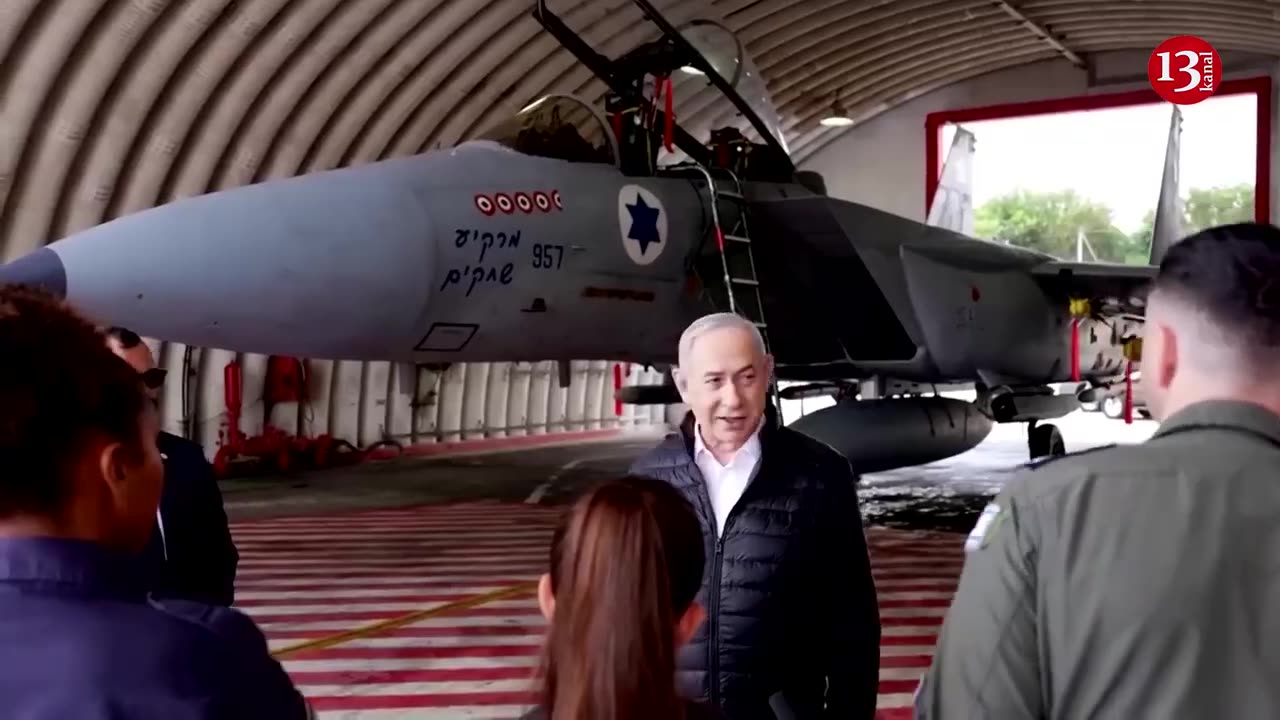Premium Only Content

Territories of Syria, Lebanon are becoming main ground of the Iran-Israel war
Iran’s Supreme Leader Ayatollah Ali Khamenei has vowed to punish the “evil regime” of Israel after the attack on the consular building in which Mohammad Reza Zahedi, a high-ranking commander of the Quds Force, the elite foreign operational wing of Iran’s Islamic Revolutionary Guard Corps, was assassinated.
In Israel, political leaders as well as military and diplomatic officials said they were ready for any scenario. Asked if it was Israel that carried out the attack, Michael Ronen, head of South and Southeast Asia Division at Israel’s Ministry of Foreign Affairs, said: “They say Israel carried out the strike. Well, I don’t know. What I can say is that Israel is ready for any response from Iran.”
In this condition, after years of engaging in shadowy tit-for-tat operations, Iran and Israel's unofficial battle in Syria has been thrust out into the open by an unprecedented attack in the Syrian capital that killed several top Iranian advisers. Now, even with Israel already mired in the longest and deadliest-ever war with Palestinians, facing ongoing clashes with Hamas and constant fire from Iran-aligned "Axis of Resistance" factions from at least four nations, the Iran-Israel indirect war taking place on the sidelines of the war in Gaza threatens to become the main event.
"It's very important to differentiate between the level of hostility we have witnessed so far and the potential for a full-fledged regional war," Eran Etzion, former head of policy planning at the Israeli Foreign Ministry and deputy head of the Israeli National Security Council, told Newsweek. "It's very, very different."
For Israel, the situation has presented "a strategic dilemma" for Israeli leadership, as observed by Etzion. That is "to what extent do we attempt to directly attack Iran rather than simply attack its various proxies, including the ones in Syria?"
In addition to the hundreds of strikes conducted by Israel against Syria over the course of at least a decade, he pointed out how, "throughout the years, Israel has taken some actions on Iranian soil, for some it has taken responsibility and for some it has not."
Mostafa Najafi, an Iranian researcher specializing in Middle East conflicts and Iran's foreign policy, argued Tehran had already outlined its reaction to what may come next.
"Part of this response is done directly by Iran, which is, of course, limited," Najafi said. "A major part is also more intense by resistance groups in Iraq, Syria, Lebanon and Yemen. The location of the answer also includes both inside Israel and the assets of this regime outside the occupied territories. The Persian Gulf, the Arab countries, the Oman Sea, and the Mediterranean will be the target areas outside of Israel."
-
 LIVE
LIVE
Barry Cunningham
1 hour agoPRESIDENT TRUMP IS BUILDING A NEW MAGA! ARE YOU READY FOR THE NEXT ACT?
5,291 watching -
 LIVE
LIVE
Dr Disrespect
8 hours ago🔴LIVE - DR DISRESPECT - STREAMING UNTIL WE GET 10 WINS
1,918 watching -
 LIVE
LIVE
RiftTV
2 hours agoCON INC: We Should All Just FORGET About Epstein | The Rift | Dinesh D’Souza, Lauren Witzke + More
611 watching -
 LIVE
LIVE
LIVE WITH CHRIS'WORLD
1 hour agoLIVE WITH CHRIS’WORLD - I Have So Many Questions Right Now
75 watching -
 58:21
58:21
BonginoReport
3 hours agoTrump Deepens MAGA’s Epstein Divide - Nightly Scroll w/ Hayley Caronia (Ep.91) - 07/16/2025
110K62 -
 LIVE
LIVE
RalliedLIVE
5 hours ago $0.85 earned10 WINS WITH THE SHOTTY BOYS
88 watching -
 LIVE
LIVE
Playback Request Live
1 hour agoLevel Up: Our First Live Performance ft. Lady Desiree
162 watching -
 LIVE
LIVE
Blabs Games
1 hour agoBig Bad Uno Plays | Noob Plays
37 watching -
 LIVE
LIVE
The Jimmy Dore Show
2 hours agoTrump Attacks His OWN Supporters As Democrat Dupes Over Epstein! Columbia University CAVES to Trump!
7,295 watching -
 1:25:13
1:25:13
Kim Iversen
3 hours agoColonel Macgregor: The Pentagon Has No Strategy, Only Targets
70.8K66